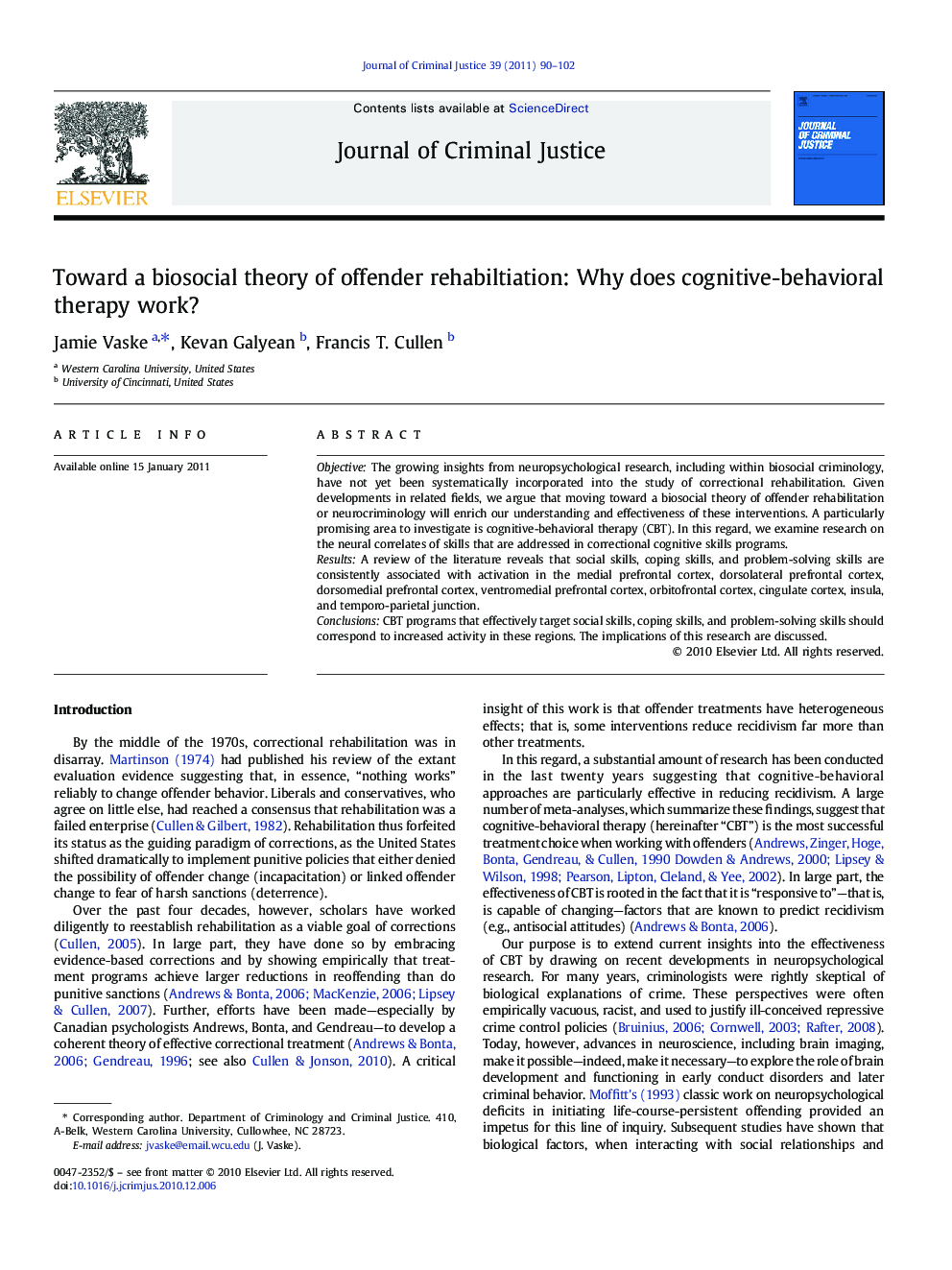| کد مقاله | کد نشریه | سال انتشار | مقاله انگلیسی | نسخه تمام متن |
|---|---|---|---|---|
| 883099 | 912044 | 2011 | 13 صفحه PDF | دانلود رایگان |

ObjectiveThe growing insights from neuropsychological research, including within biosocial criminology, have not yet been systematically incorporated into the study of correctional rehabilitation. Given developments in related fields, we argue that moving toward a biosocial theory of offender rehabilitation or neurocriminology will enrich our understanding and effectiveness of these interventions. A particularly promising area to investigate is cognitive-behavioral therapy (CBT). In this regard, we examine research on the neural correlates of skills that are addressed in correctional cognitive skills programs.ResultsA review of the literature reveals that social skills, coping skills, and problem-solving skills are consistently associated with activation in the medial prefrontal cortex, dorsolateral prefrontal cortex, dorsomedial prefrontal cortex, ventromedial prefrontal cortex, orbitofrontal cortex, cingulate cortex, insula, and temporo-parietal junction.ConclusionsCBT programs that effectively target social skills, coping skills, and problem-solving skills should correspond to increased activity in these regions. The implications of this research are discussed.
Research Highlights
► CBT programs that promote prosocial skills may improve brain functioning.
► CBT programs for may improve functioning in PFC regions, ACC/PCC, insula, and the TPJ.
► Improvements in brain functioning may be both compensatory and normalizing.
Journal: Journal of Criminal Justice - Volume 39, Issue 1, January–February 2011, Pages 90–102